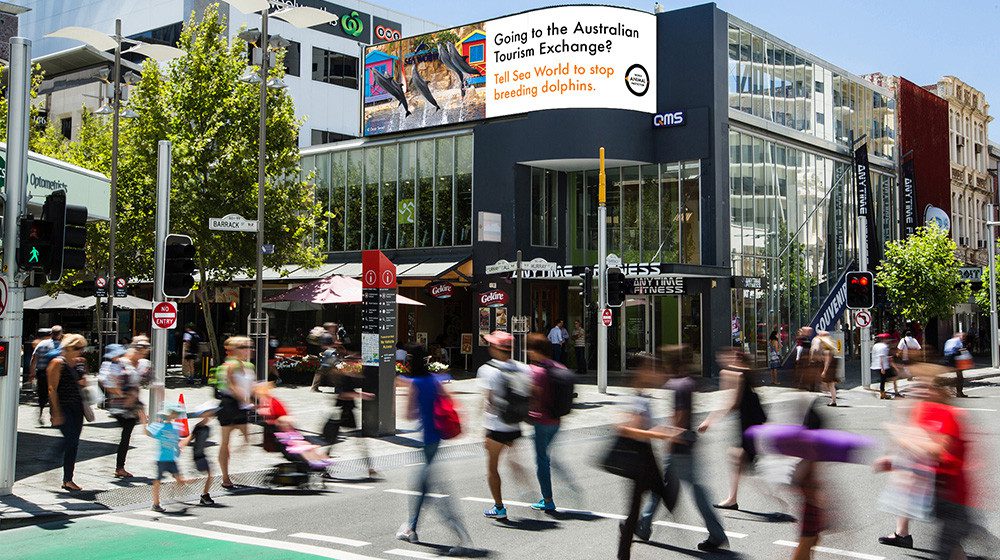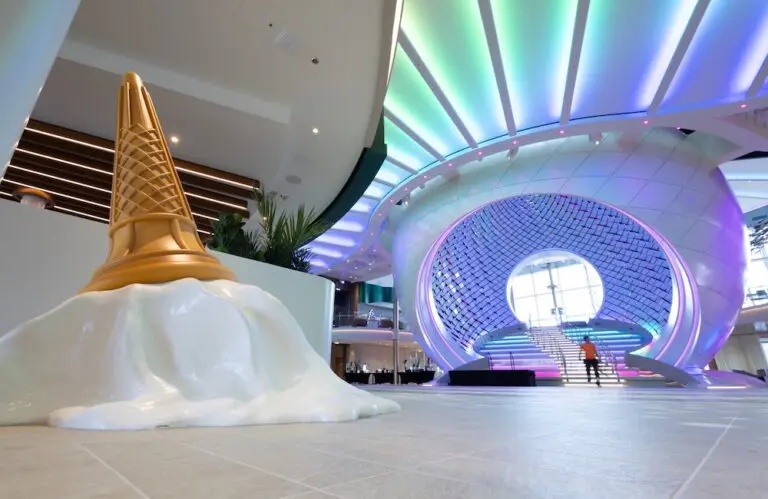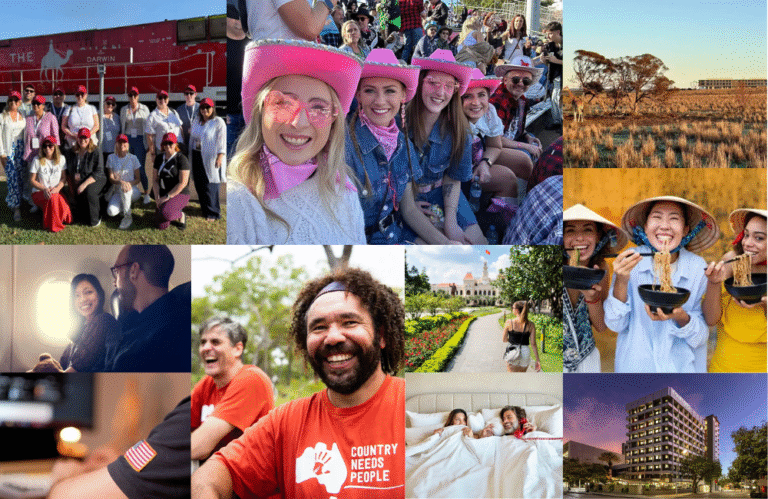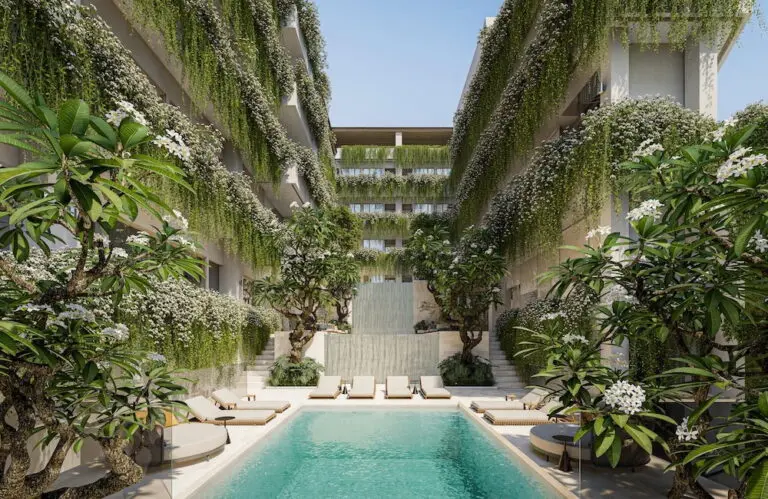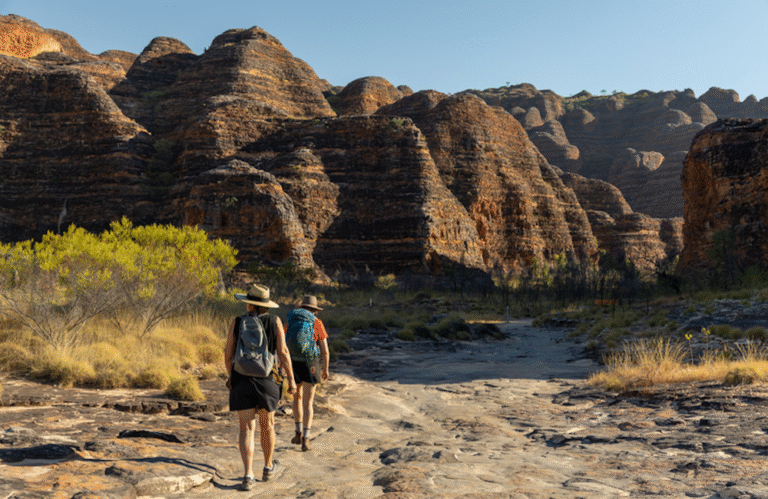A very public call has been made for the travel industry to speak up & put pressure on Sea World to cease its captive dolphin breeding program.
World Animal Protection – a non-for-profit dedicated to building a safe world for animals – has publicly called out travel industry professionals and asked them to help end Sea World’s captive dolphin breeding program.
When we say publicly, we mean billboards have been taken out in busy areas with messaging which calls for travel companies attending the Australian Tourism Exchange (ATE) in Perth this week to join the fight against Sea World’s program.

The billboard reads:
“Going to the Australian Tourism Exchange? Tell Sea World to stop breeding dolphins.”
According to the organisation, Sea World on the Gold Coast is one of only two captive dolphin venues left in Australia after Dolphin Marine Conversation Park in Coffs Harbour ceased its program last month.
The Queensland-based water park is believed to have some 30 dolphins who can endure up to 50 years in captivity.
World Animal Protection said the travel industry holds a lot of weight in Sea World’s ticket sale and have the power to end the mistreatment of these aquatic mammals.
“The travel industry is a key source of demand for Sea World and we’re urging them to take steps to help end animal cruelty.”
World Animal Protection

In the wild, dolphins are estimated to swim up to 100km in a day and deep dive hundreds of metres. This is a complete contrast to the limited swimming space in captivity.
In response to World Animal Protection’s campaign, Sea World told Karryon that while it’s aware that some people do not support the idea of animals in human care, the waterpark is proud of its “passionate team, our world-class facilities and our position as a global community leader in conservation and education”.
The park went on to say that it is an accredited zoological institution under the Zoo and Aquarium Association and is regulated by multiple State and Federal Government agencies.
“The health and wellbeing of our animals is of the utmost priority at Sea World and we have a strong reputation for caring for marine animals.”
Sea World
“All of the dolphin breeding at Sea World is done naturally and is part of a carefully managed breeding program, which has been in place for many years,” Sea World’s statement continued.
“Reproduction is a natural process which enriches the lives of the animals and helps contribute to positive welfare of the animals, which is our utmost priority.”
Sea World also noted that it operates the not-for-profit Sea World Research & Rescue Foundation, which rescues, rehabilitates and releases thousands of marine animals as well as funded over 150 marine research projects with high scientific merit.
- READ: The last captive dolphin breeding operation in NSW to end program
- READ: Canada bans captivity of dolphins & whales in aquariums
- READ: Experience a dolphin interaction the right way

